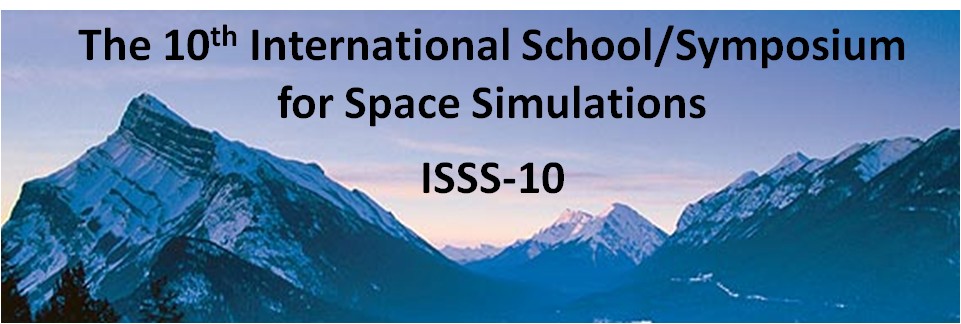About ISSS-10
The International School/Symposium for Space Simulations (ISSS) has a history of nearly 30 years and the program is designed for the teaching of space plasma simulation techniques and sharing of state-of-the-art simulation advances and results with researchers in plasma physics. ISSS-10 will bring together the most recent observational results, theoretical advances and numerical simulations to address the outstanding problems in space physics.
The first ISSS was held in Kyoto, Japan and was organized by Prof. Maha Ashour-Abdalla from UCLA, Prof. Hiroshi Matsumoto from Kyoto University and Prof. Roger Gendrin from France. The motivation for the symposium was to promote the new field of numerical simulation of space plasmas in order to help understand and interpret experimental results from spacecraft and ground-based observations. The school was initiated to teach students basic numerical simulation techniques and expose them to the latest research results in the field. Tutorial sessions with "hands-on" experience with simulation codes were led by experts in the field. The overwhelmingly positive response from both students and scientists led to follow-up ISSS meetings held every 2-3 years. The most recent locations were Paris, France (2009), Kauai, Hawaii (2007) and Kyoto, Japan (2005).
The Geospace and planetary plasma environments are probed by a variety of spacecraft and the interpretation of measurements as well as mission planning relies heavily on numerical simulations and models. The school and symposium offer those doing this type of theory an opportunity to share ideas, learn about new methods, and see the latest applications. For students, ISSS provides a view into the different types of simulation models, experience working with algorithms and codes, and an opportunity to meet a large section of experts in the field. The conference will concentrate on problems that are important to space plasma environments.
The conference will consist of 6 tutorials with the same number of accompanying "hands-on" sessions, 9 symposium sessions and 2 poster sessions. The following topics are planned:
Tutorials:
Magnetohydrodynamics(MHD) simulations
Hybrid simulations
Large Scale Kinetics/Test Particle simulations
Particle-in-Cell simulations
Vlasov simulations
Parallel computation and data visualization
Symposium Session Topics:
Solar wind and terrestrial magnetosphere interaction
Ionosphere and auroral processes
Comparative study of planetary magnetospheres
Solar processes
Waves and wave-particle interactions
Energetic particle production and relativistic processes
Transport processes in space plasmas
Spacecraft-plasma interactions
Solar wind-unmagnetized bodies(comets, moon, etc) interactions
Collisionless shocks
Magnetic reconnection
Multi-scale and cross-scale coupling processes
Simulation techniques and code development
Data analysis and visualization methods
Abstracts and presentations will be available at the conference website.

